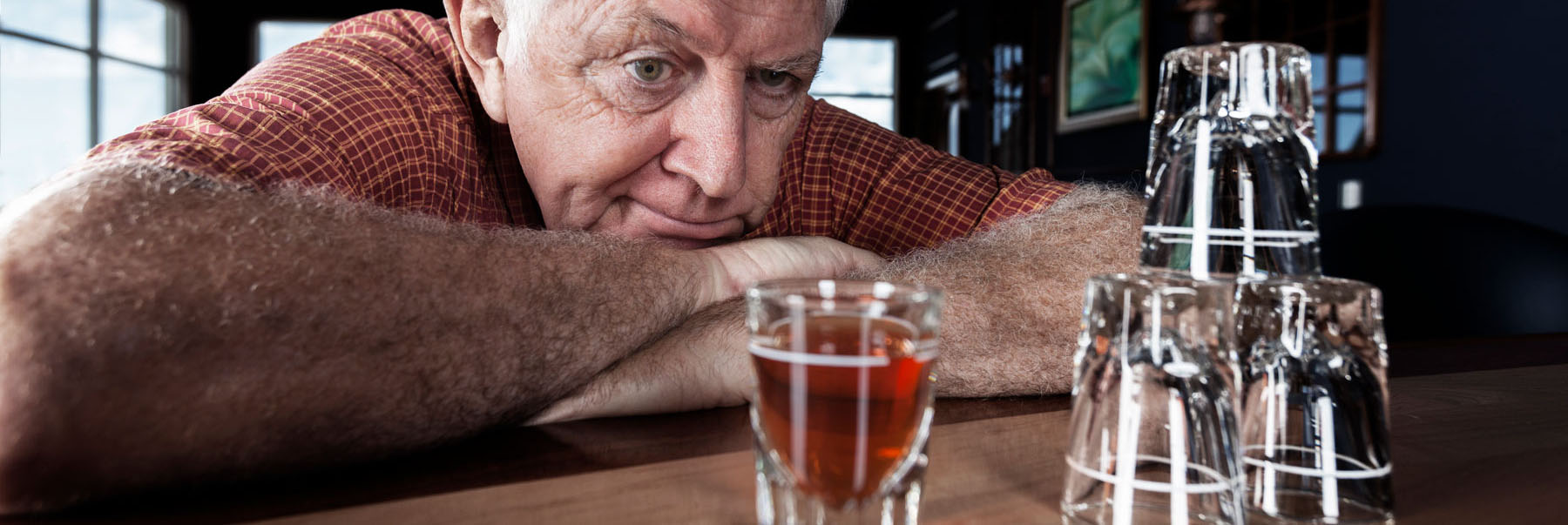Binge Drinking – It’s Not Just the Kids

Mention binge drinking and few think of senior citizens quaffing too many at a bar. Yet a study that examined data from the US National Survey on Drug Use and Health, found that the over-65 set is using alcohol at alarming rates.
The study, recently published in the Journal of the American Geriatrics Society, looked at self-reported alcohol consumption between 2015 and 2017. Researchers discovered that about one in 10 seniors reported engaging in binge drinking, defined as having four drinks in one sitting for women and five drinks for men. That’s the highest it has been in the past decade.
This translates into a jump from 3 million older adults binge drinking in 2005 to more than 5 million by 2016.
Binges were most common in men — though women appeared to be catching up.
“I’m not surprised, not really,” says Dr. Elizabeth A. Crocco, a geriatric psychiatrist with the University of Miami Health System. “It’s either something they’ve been doing for a while and carry it into old age or it’s something they pick up for a lot of different reasons.”
With the aging of baby boomers, a generation known for its free-wheeling experimentation with drugs, Dr. Crocco expects those numbers to hold steady or rise. “More and more of the elderly are baby boomers,” she adds, “and they have a way of thinking that they’re still young and will live forever, so they don’t have to worry about the consequences.”
Yet, the consequences can be serious, particularly for older adults who don’t metabolize alcohol in the same way they once did. “We become more sensitive to alcohol as we get older,” Dr. Crocco explains. “Your body simply doesn’t get rid of it as well.”
While a single incident of binge drinking might not affect your liver, drinking a lot over several months or years can tax not only that organ but the rest of your body. Over time alcohol use can lead to cancer, brain damage and immune system disorders. It also worsens health conditions like high blood pressure, ulcers, diabetes, osteoporosis and mood disorders.
Because drinking can impair judgment, coordination and reaction time, the risk of car crashes and falls also increases.
This is particularly worrisome for older adults. “Too much [alcohol] can lead to falls,” Dr. Crocco says, “and that’s a huge problem for seniors who already have an issue with balance.”
She points out that the likelihood of broken bones from such a fall is high because older people have thinner bones. Studies also have shown that hip fractures among this demographic increase with alcohol use.
In addition, alcohol can worsen existing chronic diseases, such as hypertension and diabetes. (About 80 percent of older adults have at least one chronic condition, according to the National Council on Aging.) It also interferes with certain medications as well, including aspirin, blood thinners, sedatives and pain, cold and allergy medicines. Considering that many seniors are on at least one medication and probably more, “the interaction can be very dangerous,” Dr. Crocco says.
Though the study does not examine why older adults are binge drinking, she has her own educated theories. Alcohol, she explains, “is legal, acceptable, and readily available everywhere. There’s also a social aspect to drinking, which is true for young people and old.” What’s more, loneliness is a big problem among the elderly and feeling isolated may encourage people to over-indulge.
Like many healthcare providers, she suggests primary doctors screen for alcohol use by posing unobtrusive questions during regular visits.
Friends, spouses and adult children should also look out for unusual behaviors, such as frequent falls, isolation, secretive behavior and lifestyle changes.
“If you suspect anything, you should talk to the person straight on,” she says. “Point out the behaviors that lead you to believe there’s a problem.” Asking the primary care doctor or another physician to intervene might also be beneficial.
Dr. Crocco warns, however, that getting a person to seek help will be difficult. “They can be extremely, extremely resistant, even when they know they have a problem,” she adds. “They believe they’ve been adults for a long, long time and they don’t want anyone telling them what to do.”

Ana Veciana-Suarez, Guest Columnist
Ana is a regular contributor to the University of Miami Health System. She is a renowned journalist and author, who has worked at The Miami Herald, The Miami News, and The Palm Beach Post. Visit her website at anavecianasuarez.com or follow @AnaVeciana on Twitter.
Tags: aging, alcohol consumption, alcoholism, Dr. Elizabeth A. Crocco, loneliness, seniors
